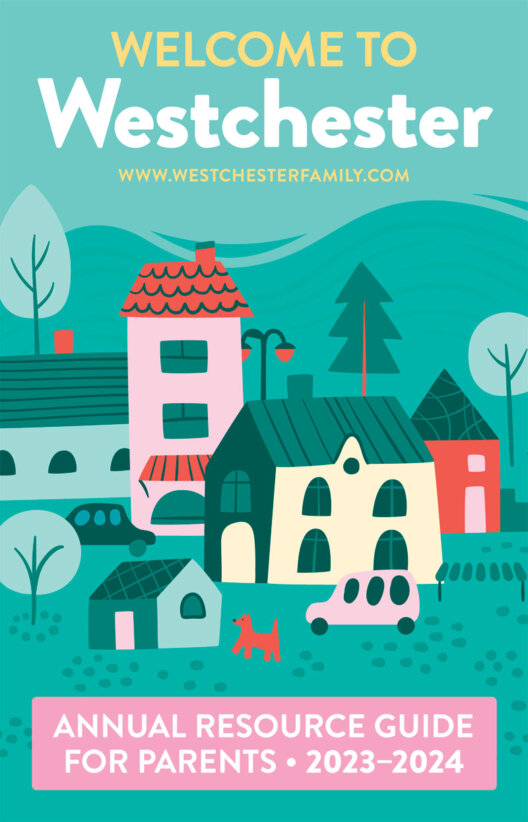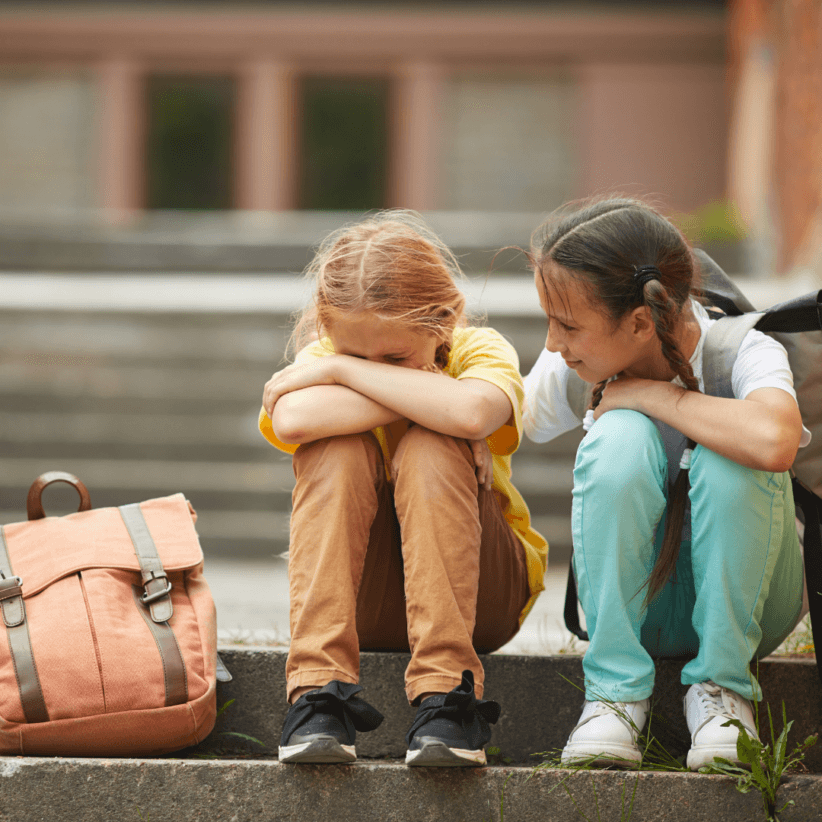State of Teens Mental Health, Confidence, Anxiety, and More
Teenagers have always had to deal with a host of issues. As a part of coming of age, teens are dealing with confidence to grades to social groupings. Today’s teens are also dealing with the impact of technology and social media and mental health issues.
To learn more, we spoke with Stephanie Bloch Doyle, LCSW, a Westchester-based Psychotherapist. Below, she provides insight on her work, workshops, and tips for parents.

Westchester Family: Tell us more about your work as a psychotherapist.
Stephanie Bloch Doyle: I’ve been a social worker for 20 years, working mostly with teenagers, their parents, and young adults. I love working with teens and their parents. This is such a special time, with both great growth and development, yet also a lot of uncertainty and anxiety. While I love the healing relationships I build working one-on-one with teens; I am so passionate about supporting their parents.
Westchester Family: What are some workshops you offer.
Stephanie Bloch Doyle: I offer parenting workshops and groups for parents of teens as well as one on one parent support. This is such a powerful tool for positively changing the lives of all in the family. When parents shift their mindset and tend to their own worries and anxieties, it can massively improve things for their teens (not to mention improving the parenting experience for the parent).
Psychotherapy is about empowering people to trust themselves so they can feel confident as they face life’s challenges. I often say to a new client, “I will hold the hope for you until you can see the light and hold it for yourself.” This optimism is informed by decades of working with individuals and families facing some of life’s most painful and scary problems.
Through these struggles my clients gain self awareness and personal growth. Additionally, they deepen their sense of connection in their most important relationships. Overtime, they discover their own strength. I truly love what I do.
Lastly, I am energized by my work with college age and emerging adults. This is a time of intense self discovery, when individuals are eager to heal on their own terms for their own sake. Specialized support can make a huge difference in the emotional well-being, stability, and quality of life of a young adult.
Westchester Family: You also focus on teens and their mental health. Why is this important to you?
Stephanie Bloch Doyle: I love working with adolescents and their parents because I see it as a time of great opportunity for positive impact. Teenage behavior is so easily misunderstood and this can lead to a lot of conflict, confusion, and heightened anxiety for everyone. It’s a time when the parent-child relationship is in transition. Teens ultimately want and need a solid relationship with their parents. At the same time they are striving for independence and the opinion and norms of their peers are paramount. Emotions get stronger and the stakes of the teens’ risky behaviors are higher. For teens and their parents, it can feel like a big mess. In this mess of the teen years I see multiple openings for positive change and enhanced connection.
I feel a deep sense of care and compassion for the pain teens and their parents feel when experiencing anxiety, depression, and other mental health challenges. When a teen struggles it is so difficult for the family to trust that things will improve. I am passionate about helping them feel better because I know it’s possible. I’ve seen what happens when teens better understand themselves and their emotions and they can communicate their needs in healthier ways. Teens’ confidence increases, their relationships with parents and friends improve. They begin to trust themselves to make important decisions and navigate difficult situations while feeling free to experience joy and be themselves. It’s great to watch!
Westchester Family: Why do you think parents are so confused/overwhelmed with the information out there?
Stephanie Bloch Doyle: Parents today – and I am one – are under enormous pressure, mostly from themselves. We want so much for our children: emotional health, academic and professional success, healthy relationships, happiness. We want to do it better than our parents did for us. On the one hand we have so much access to information – a constant stream of parenting advice at our fingertips while scrolling instagram before bed. With all this information we feel as if we SHOULD be doing it better. Our teens SHOULD be well adjusted and free of the pain of anxiety and depression; yet they are not. It can feel like a parenting failure when our kids suffer. This only enhances the pressure to prevent any kind of struggle. Additionally, it increases the sense of urgency to make the pain go away. How can a parent not feel overwhelmed?
Westchester Family: What do you think parents need?
Stephanie Bloch Doyle: I find the conversation about the risks of adolescence short sighted and lacking a developmental lens. Parents need more education and guidance around the core tasks of adolescent development and the temporary nature of this phase and its challenges. When we give birth we are showered with detailed information about infant and toddler development, the range of timelines for our babies meeting milestones, suggestions for experiences to offer our child to foster their important developmental tasks.
It gives the perspective that the path of human development has its ups and downs, varies child to child, and is temporary. Parents need this kind of developmental education and perspective to better understand their teens’ behavior and to cope with its challenges. Parents are often confused about what to expect of their teen. While teens often feel like they are doing their best and their parents are still so hard on them. Parental and societal expectations are sometimes not aligned with where a teen is developmentally.
This causes stress, anxiety, conflict, and self doubt for both parent and teen. There can be a powerful shift in the parent-teen relationship when the parent practices patience and takes the long view on their kid’s progress. In order to do this, parents need to understand the underlying developmental processes at work. I’ve watched parents and teens in painful, conflict-ridden, and intractable relationships that come together and find deep meaningful connections as the teen ages into adulthood. Much of this improvement is simply a matter of time and human development. Patience is key.
Westchester Family: What are some common issues teens are dealing with today?
Stephanie Bloch Doyle: Teens are dealing with the same issues we were dealing with back in the 80s and 90s. They are just doing it in a much different environment. Just like us they are navigating new friendships, seeking independence, dealing with new romantic and sexual feelings, taking new risks, and dealing with big decisions. Not to mention getting through High School. When we start by connecting with our common experiences we can have more empathy for our kids and what they are going through in today’s world.
We must also acknowledge that our kids are dealing with these eternal issues of teenage life in a world that is different from ours. They live in a world of unfettered access to information and experiences through ever advancing technology. Teens are navigating friendships and romantic relationships in a world of digital communication.
In this landscape, nearly anyone can contact them at any time of day. One impulsive text message can set off a spiral of relational anxiety. Teenagers live in a world where exceptional is the norm and an 87 feels like a failing grade. Additionally, substances are highly available and accessible without adult detection. Teens are also more aware of social and environmental injustice. They live in a world where school violence is a random and a real possibility. They live in a world where supermodels are not professionals on magazine covers but the girl in your science class who just posted in a bathing suit while on vacation.
This environment puts an enormous amount of pressure on our teens as they’re experiencing change. It offers them enormous opportunities that were never available to us. It’s a powerful tool to both connect with your commonalities while allowing your kid to be the expert of their own unique experience. Not every teen is impacted by all of these issues. So get curious. Let your teen teach you a few things about what it’s like to be a teen in their world.
Westchester Family: How can parents help their teen with anxiety as well as deal with their own?
Stephanie Bloch Doyle: The best way for parents to reduce their teen’s anxiety is to address their own. Many parents I work with get stuck in a worry-based mindset. They feel like if they stop worrying they will drop the ball. When we worry our kids know it and it sucks for them. The only options for our teens when they face our worry are to fiercely defend how they are totally fine and then close the door to caution or to become more anxious themselves and have their confidence shaken. When we worry about our kid we are communicating to them that we do not have confidence that they can be ok in the end.
Anxiety and worry are really our mind tricking us into thinking we can avoid the discomfort of life’s challenges. That if we continue to focus on the worst case scenario it can never come. That we can avoid the uncertainty of not knowing exactly how and when the struggle will resolve by getting stuck in a never ending loop of ruminating, anxious thought. It’s true that we never know exactly when things will get better and what getting better in the end will actually look like. The result may not be what we expected or even hoped for. This is a hard one for parents. We just want to know that our kid will be ok.
Westchester Family: What is resilient parenting mindset?
Stephanie Bloch Doyle: I coach parents to adopt a resilient parenting mindset. This mindset acknowledges the reality of the struggle. It holds trust and confidence that we can get through it even if we cannot know the end result. Adopting this mindset often requires support and authentic connection with others. It requires parents to get real about our vulnerabilities. It requires us to have awareness of the relationship between our own adolescent experiences and the hopes and dreams we cling to for our kids and acknowledge when these hopes may not fit the kid we have.
To adopt this mindset we must be aware of societal pressures and use a critical lens to evaluate if these expectations are right for us and our kid. This mindset holds true that we ultimately grow from our difficult experiences but only if we acknowledge, accept, and face them with determination and confidence. With this mindset parents can have more patience and compassion for our teens when they struggle, fail, or hurt. We can also have compassion for ourselves.
Westchester Family: What does a confident teen look like?
Stephanie Bloch Doyle: A confident teen trusts themselves, is honest about their limitations, and uses their support to get through life’s challenges. A confident teen is compassionate with themselves when things don’t go well, when they don’t get the outcome they desire, or when they make a mistake. A confident teen has strong, authentic relationships with peers and adults. Teens need at least 1-2 friends who get them, who know and love them for who they are; they have their people. Teens also need a broader perspective that even if their people are not at their school or in their community, they are out there somewhere; sometimes rare birds take longer to find their flock.
A confident teen also has 1-2 adults in their life who they can go to for support and guidance; adults who feel safe for this teen to be vulnerable, imperfect and acknowledge their struggles. It is so important to find opportunities for your teen to build a supportive relationship with a trusted adult other than you: a relative, teacher, therapist, coach.
Teens will not come to you with everything; that’s ok, even advisable. The most important thing is that they go to someone. A confident teen understands that being human is a process and that uncertainty is a necessary experience for this process. Teens knows that they are still cooking and so it’s ok to still feel mushy inside.
Westchester Family: Do you have anything else to add?
Stephanie Bloch Doyle: There is a lot of doom and gloom out there for the state of adolescent mental health. I think it is doing more harm than good. We absolutely need to have our eyes wide open to the very real risks that our teens face today. However, increasing parental anxiety does not help. The fog of angst and anxiety only amplifies the hard things we are going through.
It clouds judgment as we face very difficult and important decisions. If we adopt a more measured mindset toward these challenges, adults can communicate an attitude of trust and confidence in our teens to get through the challenges of modern living. What if instead of fear and helpless victimization in response to modern challenges, we face them from a perspective of empowered hope and determination.
Check out more about Stephanie Bloch Doyle, LCSW here.







